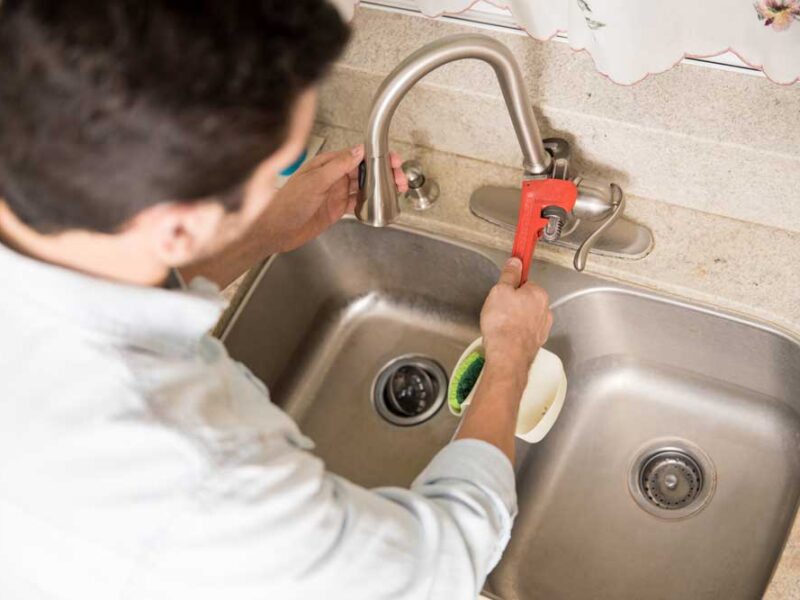Raise your hands if you’re guilty of hoarding things way beyond their useful life. Okay, I know I can’t really see you raise your hand, but I can imagine most of us are at least a little guilty. Let me inside your house and I am pretty sure I can pinpoint dozens of things that haven’t seen the light of day for a long time, nor are they likely to.
I can say this with confidence because it’s the same story in my cluttered home or at least it was until I found out some really scary stuff about how clutter can impact our health and life. So, I have decided to turn a new leaf and change things around.
I am on a de-cluttering mission, folks, and would love to have all of you join me. Let me tell you, it’s almost therapeutic to rid your house of germ-infested junk!
What’s scary about a cluttered home?
The first thing we need to understand is that being organized is a personality thing. But it’s not a trait that you cannot acquire. Just like we can learn to be effective communicators or manage anger issues, we can learn to be organized.
It’s not a problem you can solve by buying more storage or moving into a bigger home. The interesting thing about clutter is that it will follow you everywhere you go unless you change the way you handle it.
Coming back to how clutter can affect your health, one of the direct impacts of a house full of old and useless stuff is that it fatigues you. It’s a vicious circle of sorts. The more you look at it, the more tired and lethargic it makes you feel and the less inclined you are to clean up the mess.
I have been there, so believe me when I tell you looking at drawers filled with old bills, cupboards full of old clothes, and baskets full of your child’s old toys can be terribly exhausting. It’s like they are staring at you, begging you to clean them up, but you just don’t have the energy for it.
Real health risks
Clutter can also make you unproductive like you won’t believe. All you can think about is the clutter, so the fresh meal that you wanted to cook for your family or the run in the park that you wanted to go for – well, all that stuff goes out the window.
If you’re not cooking a meal because your kitchen looks like it’s been hit by a tornado, it doesn’t mean you ain’t eating, right? So, you end up gorging on unhealthy junk food or packaged meals that provide no nutrition, but tons of calories.
If you’re not able to go for a jog because you can’t be asked to find a fresh pair of socks, sneakers, or your earphones (some of us can’t think of exercising without music), you’re missing out on your required dose of physical activity.
We all know where all that is leading – to a life where you’re continuously plagued by weight issues and conditions like hypertension, heart disease, diabetes, etc. become real risks. Additionally, research indicates a direct relationship between stress and clutter. Stress is known to cause problems like insomnia, obesity, and depression among other things.
Getting rid of clutter
In addition to the health risks that we just discussed, clutter also exposes us to germs, bacteria, mold and pests. Who wants to put up with these unwelcome house guests and risk falling sick or catching an infection?
Also, some of the things lying around your house or garage can be a potential hazard. For example, an old car that doesn’t work anymore could be leaking dangerous fluids into the ground contaminating your surroundings. Cans of unused paint and non-functioning batteries are other examples of hazardous waste that need to be discarded, not hoarded.
All those cables, wires, window frames that you’ve been keeping aside for some “secret” purpose are a huge safety risk too. You can get hurt by their sharp edges or trip over them and break a body part. Okay I may have taken that a bit far, but you get the drift.
If you’re wondering what to do with all the metal scrap in your home, a profitable way of getting rid of it is to sell it at a scrap yard or recycling facility in your area.
Private recycling companies like SIMS Metal Management have scrap yards spread across the length and breadth of the country and buy not just metal scrap, but also end-of-life vehicles, e-waste and white goods from individual households as well as business establishments.
The stuff you can’t sell? Donate, recycle or reuse if you can. Just get them out of their hibernation state. So, don’t wait until the New Year to start de-cluttering your home. Instead, welcome the New Year in your delightfully clutter-free home!


